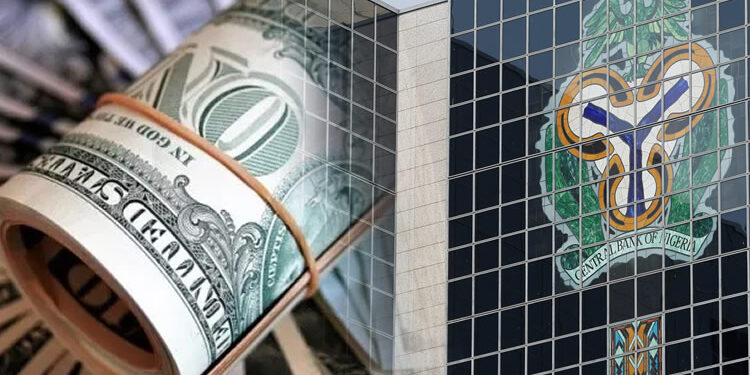The Central Bank of Nigeria (CBN) has mandated Deposit Money Banks to divest their excess dollar holdings by February 1, 2024, aiming to bring stability to the country’s volatile exchange rate.
The directive, outlined in a CBN circular, cautions against hoarding foreign currencies for profit and introduces guidelines to mitigate associated risks.

This initiative is a response to economic challenges, such as the devaluing naira and apprehensions regarding banks maintaining significant foreign currency positions.
The circular, titled “Harmonisation of Reporting Requirements on Foreign Currency Exposures of Banks,” expresses the CBN’s unease regarding the increasing trend of banks holding significant foreign currency positions. The apex bank emphasized the need for prudential measures, particularly focusing on the management of Net Open Position (NOP), which measures the disparity between a bank’s foreign currency assets and liabilities.
As per the directive, the Net Open Position (NOP) must not exceed 20% short or 0% long of the bank’s shareholders’ funds, calculated through the Gross Aggregate Method.
Banks surpassing these thresholds are required to adjust their positions to comply with the updated regulations by February 1, 2024. The Central Bank of Nigeria (CBN) has also introduced specific templates for the calculation of daily and monthly NOP and Foreign Currency Trading Position (FCT).
In addition to these measures, banks must maintain substantial reserves of high-quality liquid foreign assets and implement robust treasury and risk management systems to ensure accurate and timely reporting of foreign exchange exposures. Failure to comply with the NOP limit may lead to immediate sanctions and suspension from the foreign exchange market.
Economists and stakeholders commend the CBN’s initiatives to unify official and parallel market exchange rates, though challenges persist. Analysts advise the CBN to address a backlog of over $5 billion in foreign exchange demands to prevent a widening gap between official and parallel rates.
As part of these initiatives, Governor Olayemi Cardoso has been summoned by the CBN to appear before the Senate Committee on Banking, Insurance, and Other Financial Institutions on Tuesday. The purpose is to provide insights into the state of the economy and the ongoing challenges in the forex market.
The naira closed at N1,455.59/$ at the official window on Wednesday, reflecting a 1.82% appreciation from the previous day. However, at the parallel market, it depreciated by N61, trading at N1,511/$. The CBN’s directive has prompted Bureau De Change operators in Abuja to announce a temporary shutdown due to the scarcity of dollars, exacerbating economic concerns.
In an effort to address economic challenges, including inflation, the Senate Committee has summoned the CBN governor to shed light on the nation’s economic outlook and the recent devaluation of the naira. The meeting aims to delve into critical issues affecting the economy, seeking solutions to the ongoing challenges.







